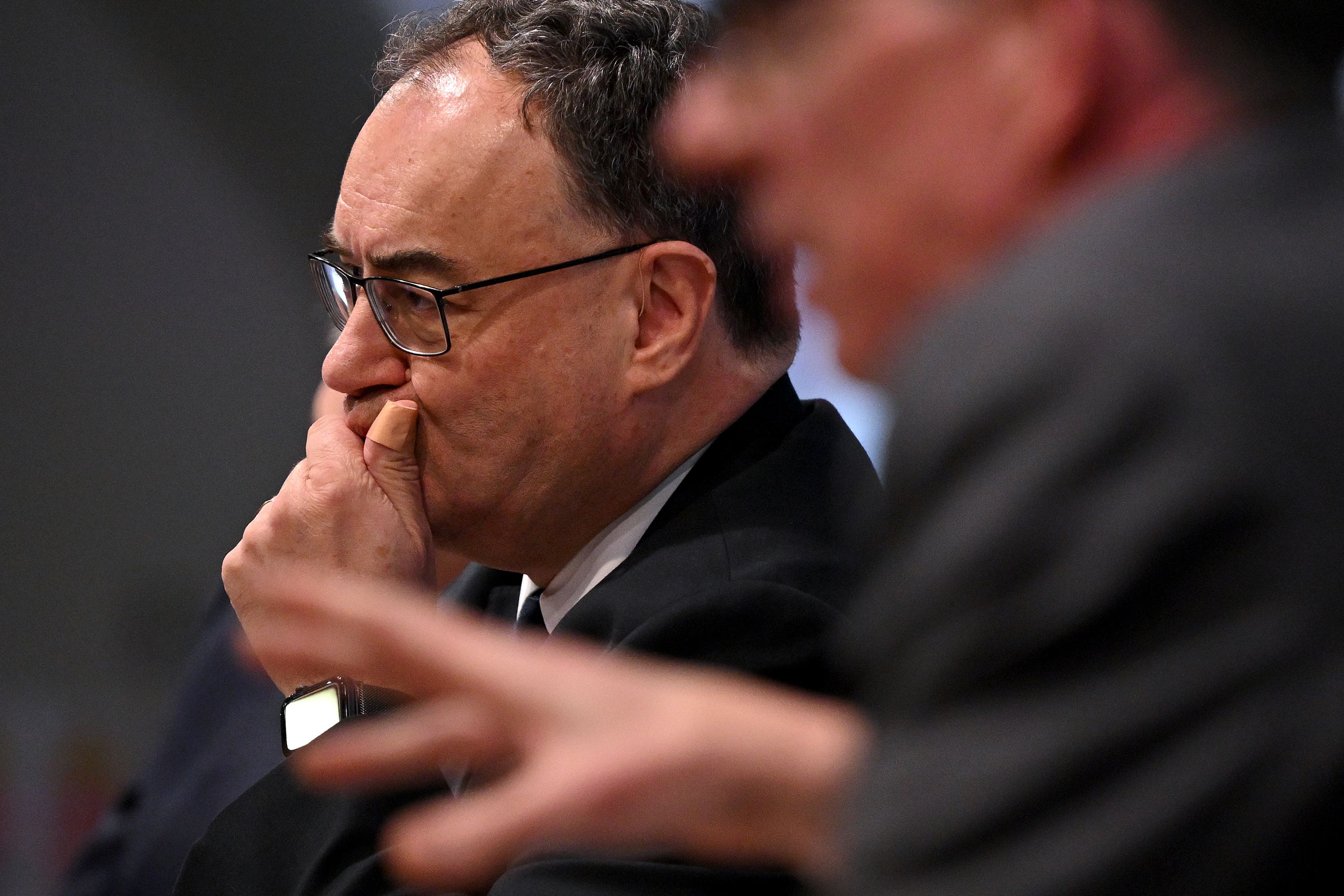MPs call for Bank of England to assess value when selling Government debt
The Bank was one of the first in the world to start selling Government debt during the cost-of-living crisis.

Your support helps us to tell the story
From reproductive rights to climate change to Big Tech, The Independent is on the ground when the story is developing. Whether it's investigating the financials of Elon Musk's pro-Trump PAC or producing our latest documentary, 'The A Word', which shines a light on the American women fighting for reproductive rights, we know how important it is to parse out the facts from the messaging.
At such a critical moment in US history, we need reporters on the ground. Your donation allows us to keep sending journalists to speak to both sides of the story.
The Independent is trusted by Americans across the entire political spectrum. And unlike many other quality news outlets, we choose not to lock Americans out of our reporting and analysis with paywalls. We believe quality journalism should be available to everyone, paid for by those who can afford it.
Your support makes all the difference.The Bank of England took a “leap in the dark” when it started to sell off Government debt in 2022 and was not paying any attention to getting value for taxpayers’ money, an influential group of MPs have said.
The Treasury Select Committee said it was important for the Bank’s key decision makers to focus on setting borrowing costs, but said that officials should start exploring how to ensure the pace of so-called quantitative tightening is at least partly based on value-for-money criteria.
The Bank said it would consider the Committee’s findings before responding.
While recognising that QT is not considered an active monetary policy tool by the Bank, the Committee determines that decisions are being taken regarding vast amounts of taxpayers’ money without any regard to value for money
The group of MPs said the Bank was the first major central bank in the world to embark on the tightening process, which essentially means selling off the Government debt that it has in order to remove money from the economy.
The debt it has sold off is the debt that it started buying in the 2008 financial crisis when the Bank wanted to add new money to a struggling economy.
It is one of the tools in the Bank’s arsenal, although its main way of getting inflation under control is to increase interest rates, which it has also been doing over the last two years.
In its report, the Treasury Committee said that the Bank had not been able to “fully consider the broader economic consequences” of its quantitative tightening (QT).
It has become clear during the course of this inquiry that the decision to undertake a period of quantitative tightening is a leap in the dark for the UK economy. I recognise that the Bank of England does not have a crystal ball and is in uncharted waters, but more can be done to develop forecasting and modelling tools which can help us understand the risks and benefits of QT
It said that economists were divided over the risks of tightening and how fast it should be carried out.
“While recognising that QT is not considered an active monetary policy tool by the Bank, the Committee determines that decisions are being taken regarding vast amounts of taxpayers’ money without any regard to value for money,” the group said.
Treasury committee chair Harriett Baldwin said: “It has become clear during the course of this inquiry that the decision to undertake a period of quantitative tightening is a leap in the dark for the UK economy.
“I recognise that the Bank of England does not have a crystal ball and is in uncharted waters, but more can be done to develop forecasting and modelling tools which can help us understand the risks and benefits of QT.
“With more public money at stake than was ever envisaged when QE (quantitative easing) was launched, the Bank and Treasury should take our advice and explore whether the usual value for money considerations can be factored in when deciding the pace and level of QT they implement.”
The Bank of England said: “We welcome the Committee’s report and will consider its findings carefully before responding. We continue to encourage active debate about our monetary policy decisions and their implementation.”